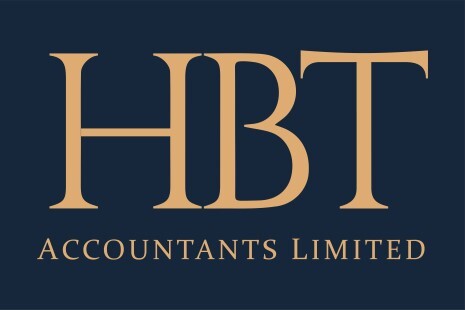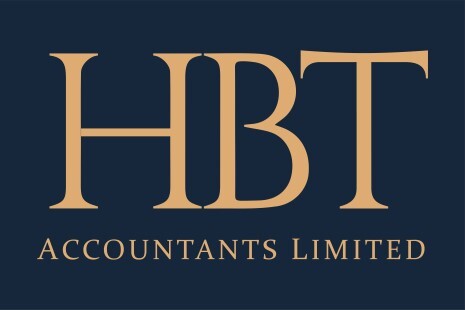In this Issue:
- Understanding your Revenue Drivers
- The value of Cashflow Forecasting during a Crisis
- Which Capital Gains are Tax Free in NZ?
- Succession planning for Small Businesses
- 6 Marketing and Design Tools for your Small Business
- Is your Business a Digital Standout or Stall out?
- Paying Tax on your Shares
- Doing the Groundwork on Health and Safety
Hello and welcome to the January 2022 edition of the HBT Newsletter
Welcome back to a New Year! We hope you've had the chance to take a well deserved break over Christmas and spent time with family and friends.
With each New Year comes new opportunities and we're excited to be a part of your journey. In this issue we've selected a range of articles we believe will help along the way.
Have a read through and let us know if you'd like more information or; if there's a topic you'd like to see covered in the next issue, drop us a line - we love hearing from you!

For your business to make money, you need to generate revenue.
You produce revenue through your usual business activity, by making sales, getting your invoices paid, or taking cash from paying customers. So, the better you are at selling your products/services and bringing money into the business, the higher your revenue levels will be.
But what actually drives these revenue levels? And how do you get in control of these drivers?
Knowing where your cash is coming from is more crucial than ever
As a trading company, you face the multiple challenges of a global recession, an increase in online consumer buying and a ‘new normal’ when it comes to trading, markets and buying expectations. The better you can understand the nature of your revenue and its drivers, the more you can flex, manage and control your ability to generate this income.
This helps your medium to long-term strategic thinking, and your decision-making, allowing you to be confident that you’re focusing on the business areas that deliver maximum revenue.
Import areas to consider will include:
- Revenue channels – where does your revenue actually come from? Do you create income from online sales and ecommerce, through retail sales in bricks and mortar stores, or through wholesales to other businesses? You may focus on just one of these channels, or it could be that you use a mixture of two, three or more.
- Revenue streams – your total revenue will be made up of a number of different ‘streams’ So, you might be a coffee shop, whose revenue streams include coffee sales, cake and pastry sales and lunch sales. Knowing which revenue streams you rely on, which are most productive and what return they are delivering allows you to make decisions. If 80% of your income comes from 20% of your products, perhaps you need to tighten up your product range and ditch some of the poor sellers. If you’re selling more services to one particular industry, perhaps you should focus more marketing in this specific niche, or downscale your sales activity in less profitable niches.
- Product/service split – Do you know which products/services are the most profitable in the business? Which products/services have been resilient to market changes (giving you some revenue stability) and which have adapted well to change? The more you can dive into your metrics and find the most productive and adaptable products and services, the greater your ability is to provide constant and evolving revenue for the business.
- Value vs volume – Is your revenue based on selling a high volume of products/services at low margin, or low volume at a high margin? Based on this, can you move your margin down to create a more attractive price point (and more value for customers)? Or are their ways to push volume up, shifting more units and boosting total revenue? By diversifying into new channels, new streams or new products/services you can aim to balance value and volume to create brand new sales – and higher revenue levels.
Talk to us about exploring your revenue drivers
If you want to boost revenue and increase your overall profitability, come and talk to us. We’ll review the numbers in your business, help you to understand your revenue drivers and will give you proactive advice on enhancing your total revenue as a company.
Get in touch to kickstart your revenue generation.
A business cash flow forecast will give you vital business intelligence to help you scenario-plan, search for cost-savings and look for strategies that will preserve your cashflow position.
Let's talk.


NZ has no Capital Gains Tax – However, some capital gains are taxable - There are fish hooks!
We can advise you on what you can sell without paying tax on any profit.
#capitalgainstax #tax

It takes guts to start a business. It also takes a strategic mindset to succeed.
Business owners are no strangers to weighing risk and navigating uncertainty, but the current climate has dialled everything up. Many business owners face the uncomfortable position of having to remap carefully thought-out succession plans and exit strategies and to consider selling their business before they’re ready and, possibly, for less than it's worth.
Transition may be a better option
Rob Young, Managing Director of Platform 1, works with business owners on ensuring they get the best possible return when selling their business. Rob's advice is to start by thinking about what options you have first.
There are five different ways to sell:
- Close the business down and sell the assets
- Sell to a family member
- Sell to an employee
- Just a straight sale to an outside party
- Gradual buy-out - The Platform 1 model.
The Platform 1 model is a gradual buy-out program. It involves finding a manager to take the reins early on. Gradual buy-out a process that involves:
- figuring out what kind of individual would be right to run the business; finding that person, and developing them.
- Creating a plan where the new manager buys in gradually over 3 to 6 years. The objective is to get the owner out of the business physically as quickly as possible by transferring relationships and processes to the incoming person, so the owner becomes more of an investor rather than a manager.
Preparing for sale - what’s important
- Get your house in order - Ensure you have systems and processes in place so the business isn’t reliant on you, but can run as a standalone entity.
- Maximise your profit - Make sure that you are not taking decisions to minimise your tax liability – because what you’re trying to do is create a profitable business.
Don’t put off your succession plan - even if you are not ready to sell
It’s a good idea to think about this long before you need to sell so that you maximise the value of the business and achieve a better outcome. It's also worth remembering that retirement doesn’t need to be doing nothing. If your business can run as an asset without your involvement, you don’t have to sell it completely, so not selling down 100% of the business is a viable option.
Talk to us today about your succession plan
If you don’t already have a succession plan in place, we can help so that you have options when you need them.
Are you a small business without access to a full marketing and design team? Here are 6 marketing, graphics and design tools for your small business.
#businessadvisory #businesssuccess


Digital evolution is essential to economic resilience. How do you see your business? Digital standout? Or stalled while you work out the next steps?

Investing on a share platforms like Sharesies or Hatch? Should you be worried about paying tax on your dividends or when you sell? We have some tips.
Health and Safety: How do you know what you need to know to get it right in your business? How do you know who to ask for help?


Contact Us:
David: (021) 666 071
Neera: (021) 050 4830
Natalie: (027) 223 5462
Our Website: https://hbtaccountants.co.nz
As a growing Business, we welcome Referrals.
